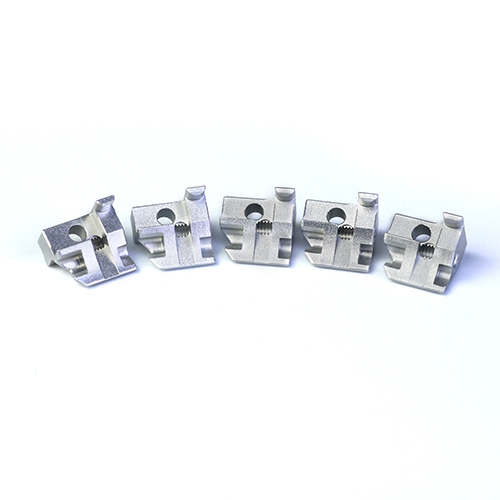In today’s competitive industrial landscape, precision CNC milling parts have become synonymous with innovation, efficiency, and uncompromising quality. From aerospace engineering to medical technology, these intricately crafted components are revolutionizing industries by delivering exceptional performance and unmatched accuracy.
But what makes precision CNC milling parts so crucial? Let’s explore their role in shaping the future of manufacturing and why demand for these high-tech components is skyrocketing across the globe.
The Core of Precision CNC Milling
CNC (Computer Numerical Control) milling is a subtractive manufacturing process that uses computer-guided machinery to carve intricate parts from raw materials. Unlike traditional machining, CNC milling combines speed, accuracy, and repeatability, making it ideal for producing precision parts with micron-level tolerances.
These parts are not just metal or plastic pieces; they are the lifeblood of innovation, forming the foundation for industries that demand high performance and reliability.
Why Precision CNC Milling Parts Are Essential
1. Unmatched Accuracy and Consistency
The hallmark of CNC milling is its ability to produce parts with incredible precision. Whether it’s a tiny medical implant or a complex aerospace component, CNC milling ensures dimensional accuracy and consistency across batches.
2. Complex Geometries Made Possible
CNC milling machines, particularly multi-axis models, can create parts with intricate geometries that would be impossible with traditional machining methods. Components like aircraft turbine blades, heat sinks, and surgical tools often feature highly detailed designs that demand advanced capabilities.
3. Wide Material Compatibility
One of the greatest advantages of CNC milling is its versatility in handling diverse materials, including:
- Metals: Aluminum, stainless steel, titanium, brass.
- Plastics: Polycarbonate, ABS, PEEK, and more.
- Composites: Carbon fiber and advanced hybrid materials.
This flexibility enables manufacturers to cater to industries with unique material requirements, such as lightweight yet durable aerospace parts or biocompatible medical components.
4. Rapid Prototyping and Production
CNC milling is a game-changer for product development, enabling rapid prototyping with quick turnaround times. Manufacturers can iterate designs and produce high-quality prototypes that are almost identical to final production models.
This speed-to-market advantage is critical in industries like consumer electronics and automotive, where innovation cycles are short.
5. Scalability for Mass Production
Precision CNC milling is as effective for mass production as it is for prototyping. With computer-controlled automation, manufacturers can produce large volumes of identical parts without sacrificing quality, making CNC milling a cost-effective solution for global industries.
Industries Driving Demand for Precision CNC Milling Parts
1.Aerospace and Defense
In aerospace, every component must withstand extreme conditions while maintaining perfect functionality. Precision CNC milling parts such as engine components, landing gear assemblies, and avionics housings ensure the safety and performance of aircraft.
2.Medical Devices
From orthopedic implants to dental tools, CNC-milled parts play a vital role in healthcare. The precision required for these parts ensures they are safe, sterile, and biocompatible, adhering to strict regulatory standards.
3.Automotive Innovation
The automotive sector relies heavily on CNC milling for parts like engine blocks, gear housings, and suspension components. With the shift toward electric vehicles (EVs), CNC-milled parts are essential for creating lightweight, high-performance components that improve efficiency.
4.Electronics
As electronic devices become smaller and more powerful, CNC milling enables the production of intricate parts like heat sinks, connector housings, and micro enclosures for semiconductors.
Technological Advancements in CNC Milling
The precision CNC milling industry is continually evolving, driven by advancements in technology that enhance efficiency and quality:
1. Multi-Axis Milling Machines
Modern CNC mills feature up to 5 or 6 axes, allowing for complex machining in a single setup. This reduces production time, minimizes material waste, and ensures superior accuracy.
2. Integration of AI and IoT
Smart CNC machines equipped with AI algorithms and IoT sensors provide real-time data on tool wear, machine performance, and part quality. This predictive maintenance capability reduces downtime and improves operational efficiency.
3. High-Speed Machining (HSM)
HSM technology allows CNC mills to operate at higher speeds while maintaining precision. This innovation is particularly useful for industries requiring high throughput without compromising quality.
4. Advanced Cutting Tools
New materials like polycrystalline diamond (PCD) and ceramic-coated tools enhance the cutting performance of CNC milling machines, enabling them to handle tougher materials with ease.
The Future of Precision CNC Milling Parts
As global industries continue to push the boundaries of innovation, the demand for precision CNC milling parts is set to grow exponentially. The rise of electric vehicles, renewable energy technologies, and space exploration is creating new opportunities for CNC machining to shine.
Furthermore, with sustainability becoming a key focus, CNC machining processes are being optimized to reduce material waste and energy consumption. The development of recyclable materials and eco-friendly machining fluids is also contributing to a greener manufacturing future.
Conclusion: The Engine of Industrial Progress
Precision CNC milling parts are more than just components—they are the building blocks of progress. Whether enabling the next generation of medical devices, powering aerospace innovations, or driving automotive advancements, these parts are at the heart of modern manufacturing.
As technology continues to evolve, precision CNC milling will remain a critical driver of efficiency, performance, and innovation across industries. For manufacturers looking to stay ahead in a competitive market, investing in advanced CNC milling capabilities isn’t just smart—it’s essential.
With their ability to deliver precision, scalability, and versatility, CNC milling parts are not just shaping the future of manufacturing—they are defining it.
Post time: Jan-06-2025





